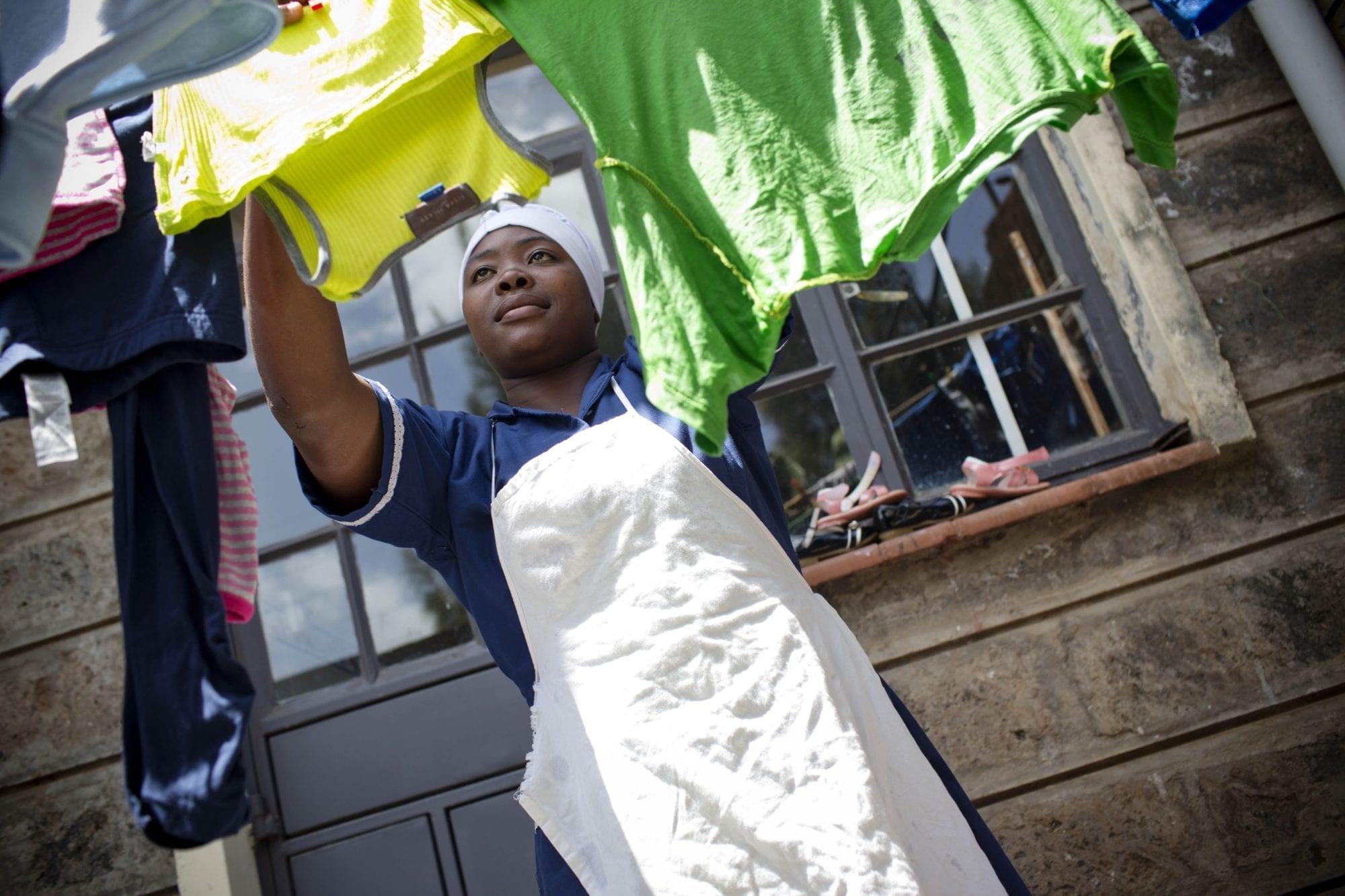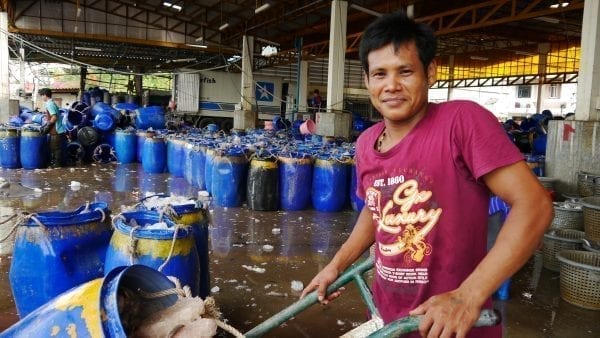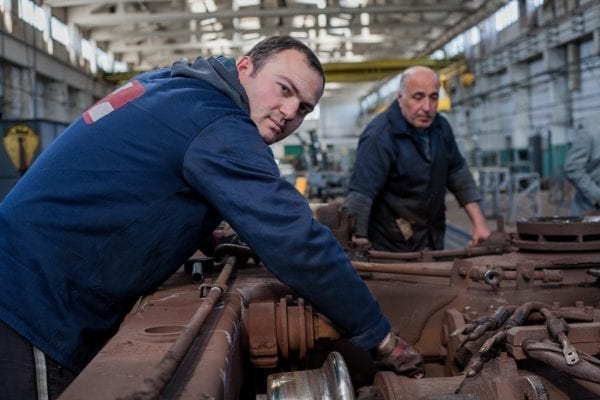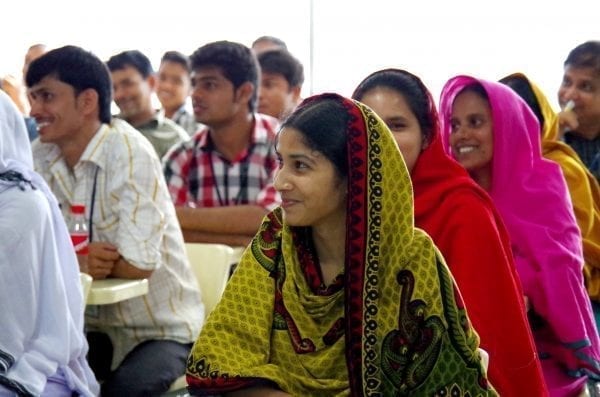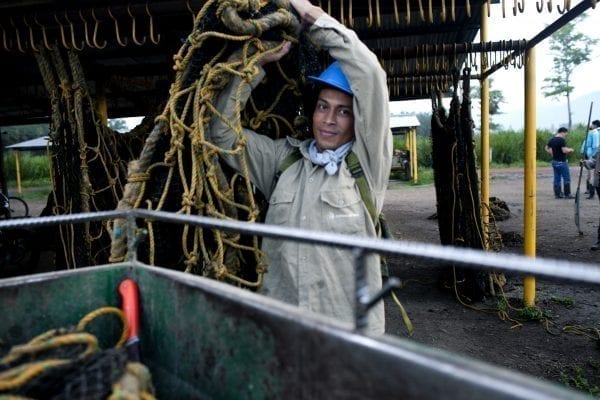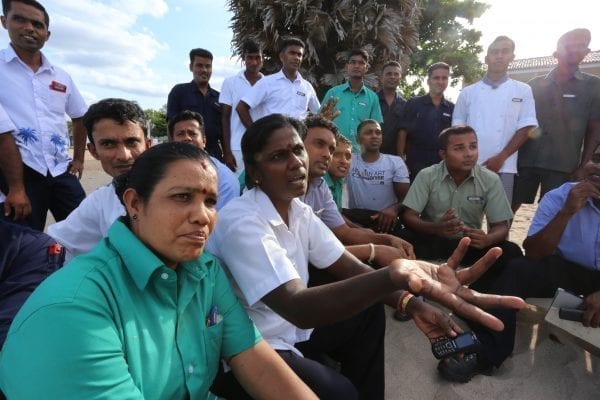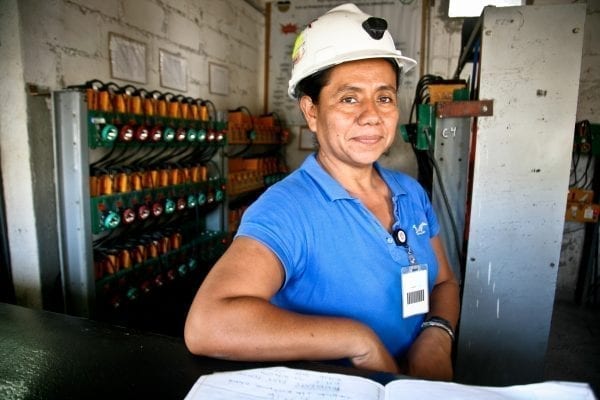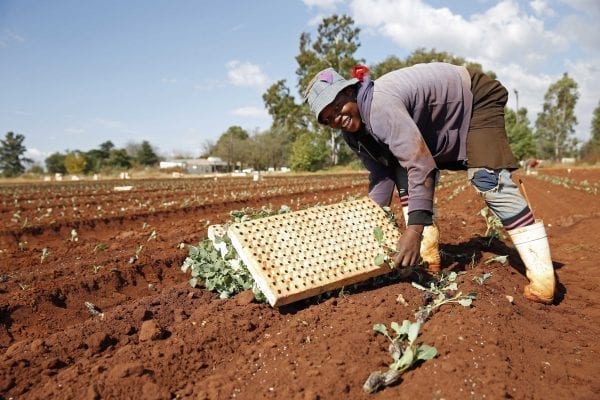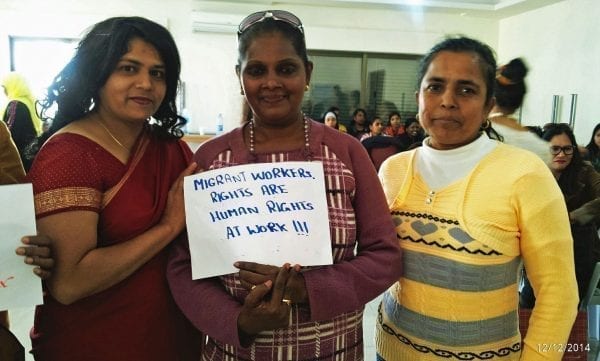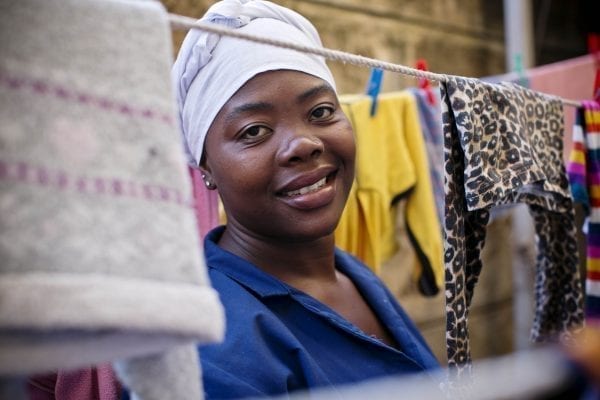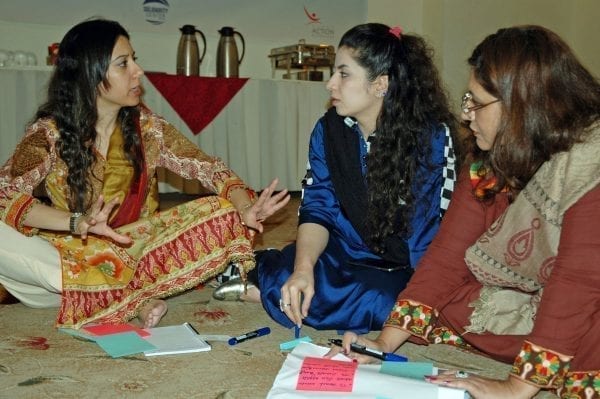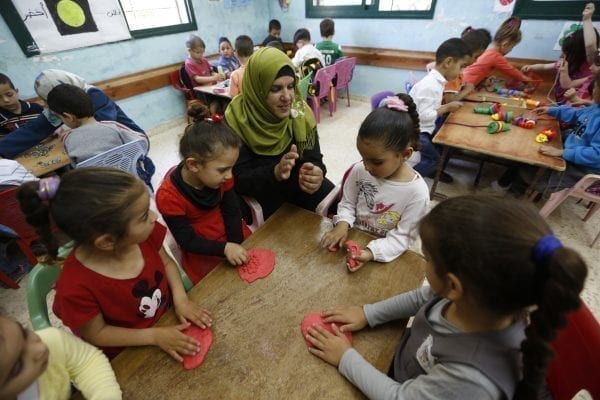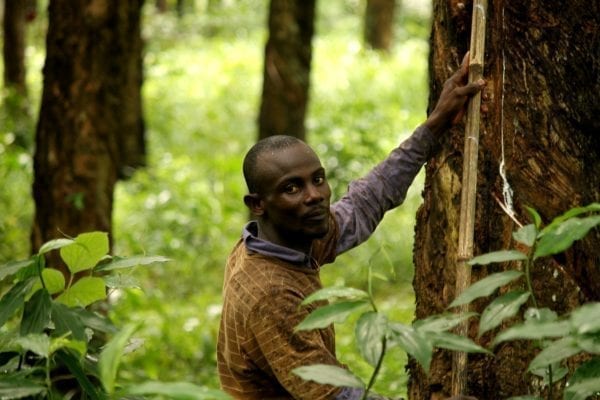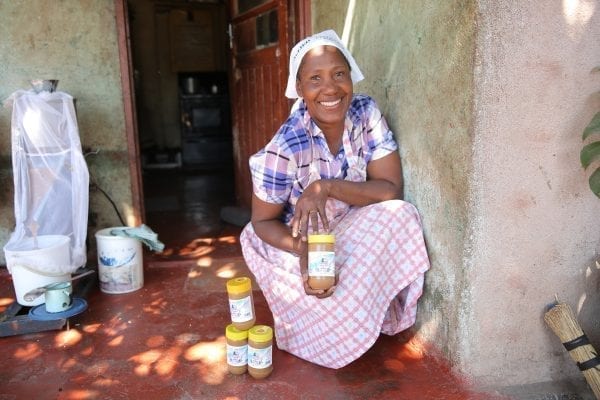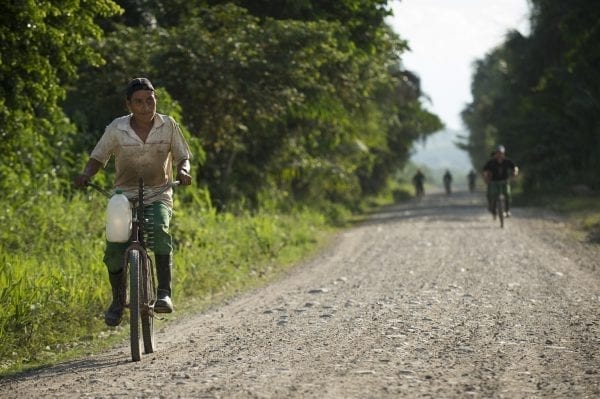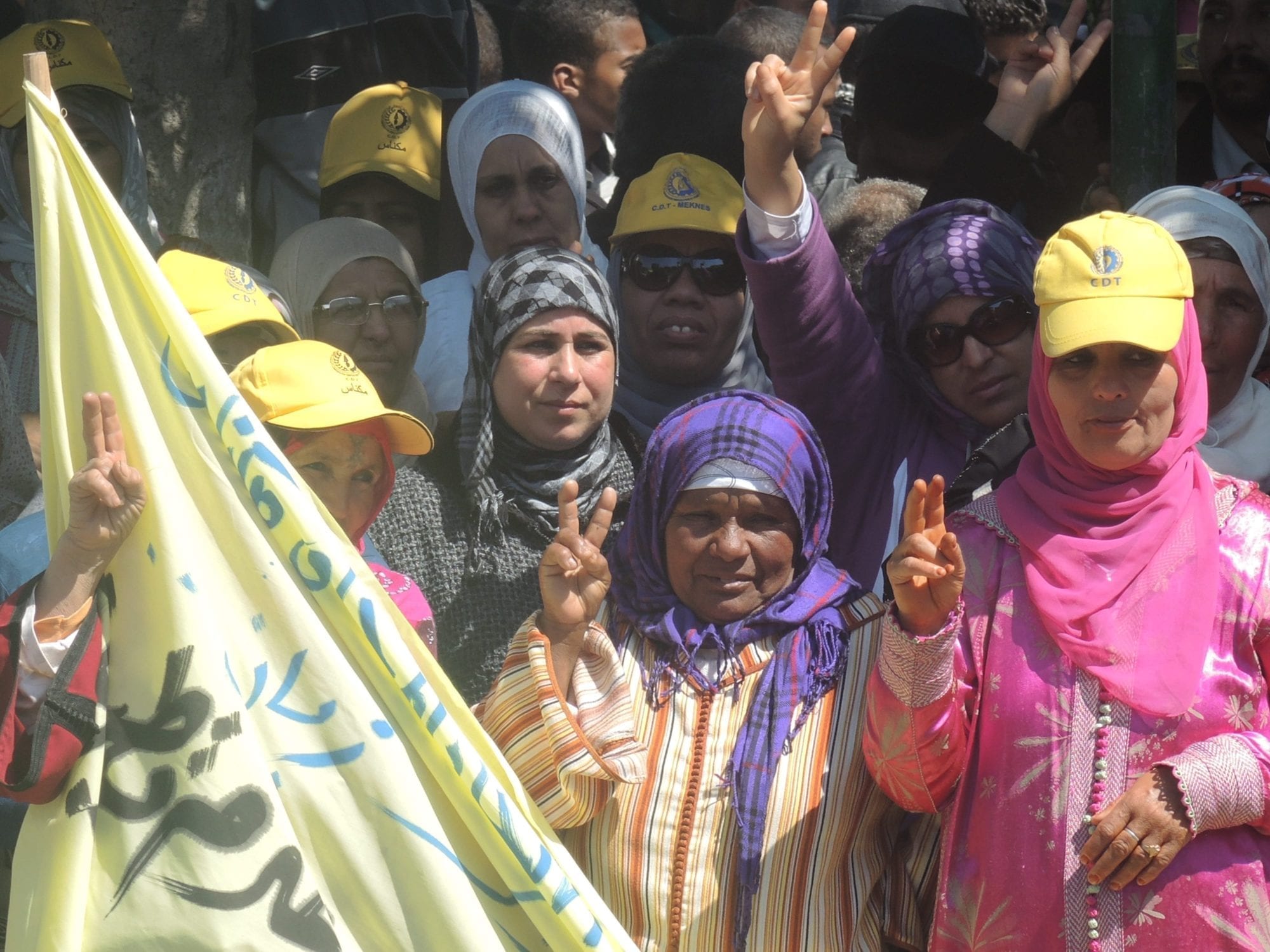
Jan 24, 2017
Decent work, living wages, safe workplaces–these are some of the goals the Solidarity Center envisions for all workers around the world and for which it strives as the largest U.S.-based international worker rights organization, says Solidarity Center Executive Director Shawna Bader-Blau in a recent interview.
Speaking on “Human Rights Heroes,” a podcast sponsored by the U.S. State Department’s Office of International Labor Affairs, Bader-Blau pointed to broad-based human rights workers can achieve when they join together in unions or associations.
“Just in the past 50 years, we can see that every major transition to democracy has had trade unions front and center.”
In Morocco, the Solidarity Center supported more than 1,000 agricultural workers, many with limited literacy and the majority women, who came together to form their first union in export agriculture.
“They sat down with employers they had always been intimidated by and negotiated fair wages, decent work and dignity for the first time,” says Bader-Blau. The workers now have full-time employment, fair wages and safer jobs.
Speaking with podcast host Sarah Fox, outgoing special representative for international labor affairs, Bader-Blau also discussed the landmark freedom of association report produced in October by United Nations Special Rapporteur Maina Kiai; the scourge of human trafficking for labor and forced labor; and the UN’s Sustainable Development Goals, especially Goal 8 on inclusive and sustainable economic growth, employment and decent work for all.
Despite economic growth and reduction of poverty in recent years, says Bader-Blau, “we’ve seen an expansion of inequality within states and between states.”
But with Goal 8, “we will be able to create through good employment the ability to have fair economies and more just societies, when workers every day can go to work and know they will get paid what they are owed and won’t face indignities at work and that they will make family supporting wages.”
Listen to the full podcast here.
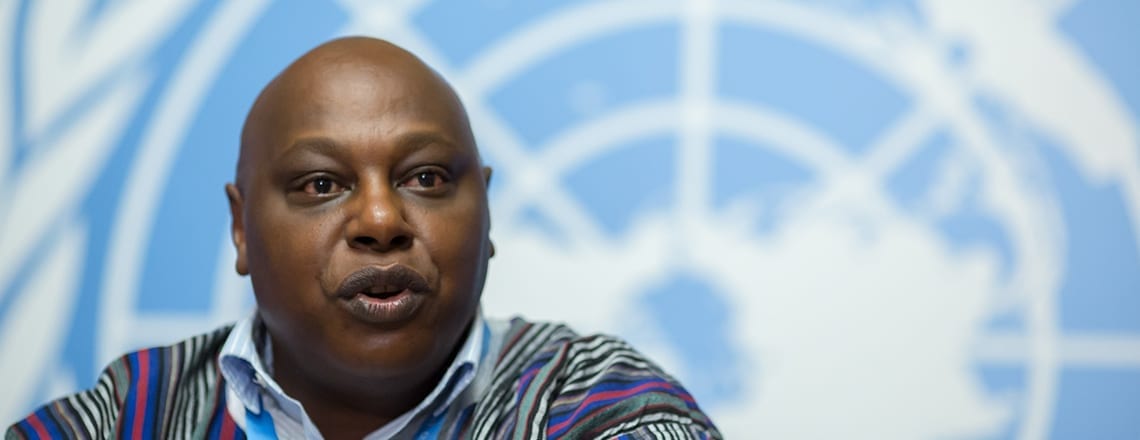
Dec 15, 2016
Describing United Nations Special Rapporteur Maina Kiai as “an effective watchdog against crackdowns of freedom of association and assembly,” AFL-CIO President Richard Trumka presented Kiai with the 2016 AFL-CIO George Meany-Lane Kirkland Human Rights Award.
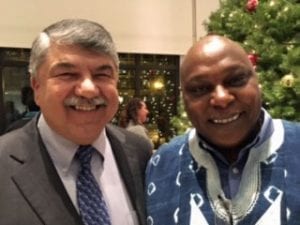
AFL-CIO President Richard Trumka (left) presented the AFL-CIO Human Rights Award to UN Special Rapporteur Maina Kiai. Credit: Solidarity Center/Tula Connell
“Maina inspires the advocates and workers who struggle to defend, to maintain and to grow the institutions of civil societies around the world,” said Trumka, speaking at the award ceremony last night in Washington, D.C. I’m talking about those who organize for women’s rights and workers’ rights, for indigenous people, for immigrants, for religious freedom and for economic justice.” (Watch the video of the full event.)
As UN Special Rapporteur on the rights to freedom of peaceful assembly and of association, Kiai in October presented the landmark “Rights to Freedom of Peaceful Assembly and of Association” report to the UN General Assembly. The report forcefully conveys how the vast majority of the world’s workers are disenfranchised from their rights to assembly and association—rights that are fundamental to all other human rights—either by exclusion or outright oppression.
‘Labor Rights Are Human Rights’
In his acceptance speech, Kiai outlined the challenges faced by champions of economic and social justice around the world, but called on labor and human rights activists to take successful lessons from the past to counter opposition to achieving fundamental human rights.
“Labor rights are human rights and human rights are labor rights,” Kiai said. “Today, we need to work differently. We need to reach out to each other. We know that every major struggle in the world has been successful through a grand alliance of trade unions and human and civil rights activists.”
Kiai previously served as head of the Kenya Human Rights Commission, and the Central Organization of Trade Unions–Kenya applauded Kiai, saying “the award singles out Maina for advancing worker and human rights issues and specifically highlighting the widespread denial of fundamental human rights at work.”
Kiai: Witness to Workers’ Struggles Worldwide
Since becoming special rapporteur in 2011, Kiai has traveled around the world, speaking with marginalized people in developed and developing countries, including workers, and hearing their struggles to exercise their fundamental rights firsthand, while speaking out about the abuses and injustices he has witnessed.
“I want to thank you for having the courage to speak up for truth,” said Trumka. “Your courage inspires all of us. Your integrity is a beacon to all of us.”
The annual Meany-Kirkland award, created in 1980 and named for the first two presidents of the AFL-CIO, recognizes outstanding examples of the international struggle for human rights through trade unions. Speakers at the event included Rep. Jamie Raskin (D-MD) and two worker Kiai met while traveling through the United States on a fact-finding mission this year, Lee Ruffin and Daniel Castellaños, founder of the National Guestworker Alliance.
The award went to the Trade Union Congress of Swaziland (TUCOSWA) in 2015; Building and Wood Workers’ International (BWI) and its affiliates in 2014; the International Domestic Workers Federation (IDWF) in 2013 and the Tunisian General Union of Labor (UGTT) and the General Federation of Bahrain Trade Unions (GBFTU) in 2012.
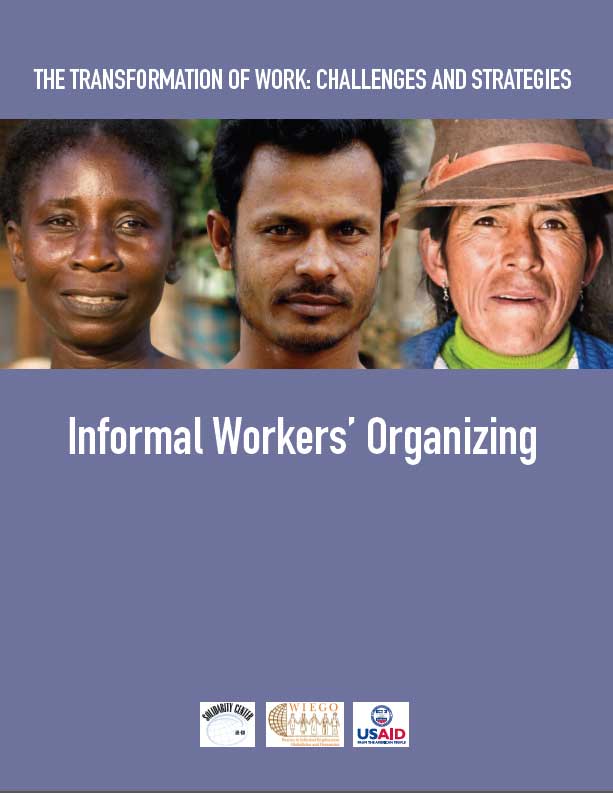
Nov 24, 2013
In overviewing self-organizing among such informal economy workers as waste pickers, domestic workers and construction workers, this report finds the lines are increasingly blurred between jobs in the formal and informal economies. This Solidarity Center report is part of a multiyear research project, funded by the U.S. Agency for International Development, to study the informal economy, migration, gender and rule of law together with research partners Rutgers and WIEGO.
Download here.
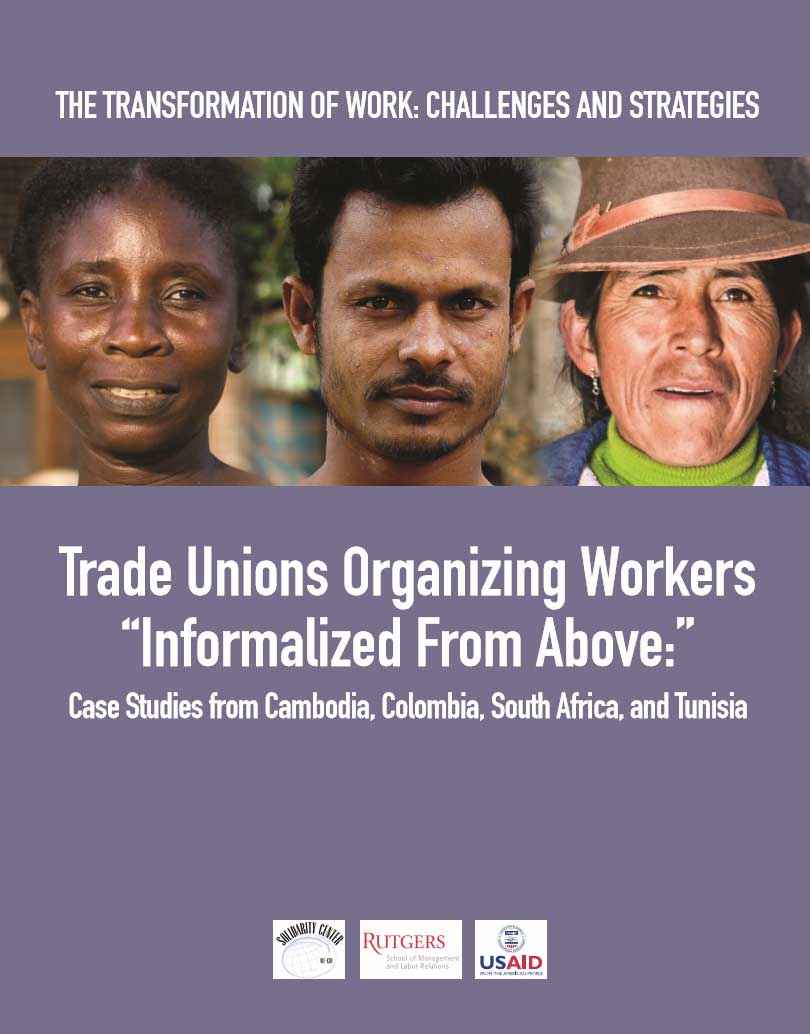
Oct 24, 2013
Four case studies examine successful union organizing among workers whose jobs have been privatized, outsourced or contracted out. This Solidarity Center report is part of a multiyear research project, funded by the U.S. Agency forInternational Development, to study the informal economy, migration, gender and rule of law together with research partners Rutgers and WIEGO.
Download here.


